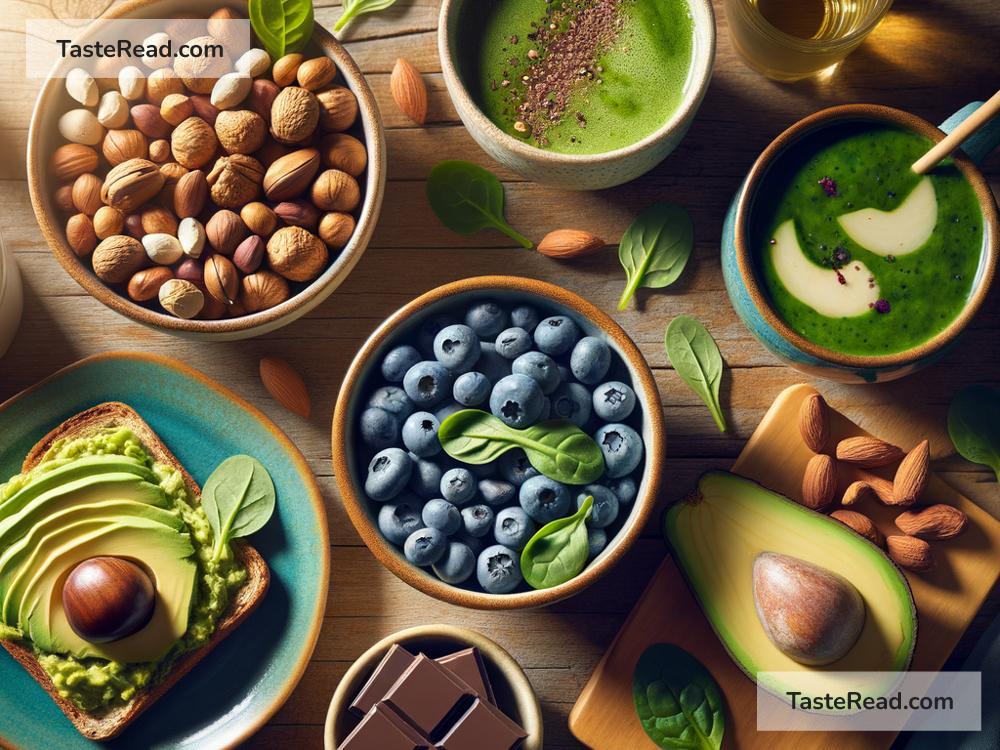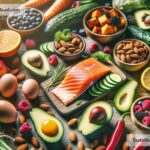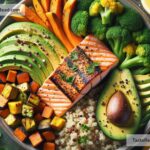Foods That Improve Multitasking Skills
Have you ever found yourself juggling multiple tasks at once—answering emails, preparing a report, and planning dinner—all while trying to stay focused? Multitasking requires our brains to be sharp, alert, and able to switch between different activities seamlessly. While practice and organization play a big role in improving multitasking, the food we eat also affects how well our brains perform. Some foods can boost our concentration, memory, and energy levels, making multitasking easier and more efficient. In this blog, we’ll explore some brain-friendly foods that can help improve multitasking skills.
1. Oily Fish
Oily fish, such as salmon, mackerel, and sardines, are rich in omega-3 fatty acids. These fats are essential for brain health because they help build and repair brain cells and improve communication between them. Omega-3s have been shown to boost memory, focus, and overall cognitive function, which are all crucial for efficient multitasking. If fish isn’t your thing, you can also find omega-3s in flaxseeds, walnuts, and chia seeds.
2. Blueberries
Blueberries may be small, but they’re packed with antioxidants that can protect your brain from aging and improve its performance. Studies suggest that eating blueberries regularly can boost memory and concentration by increasing blood flow to the brain. Plus, they can help enhance your ability to process information quickly, a key skill when you’re multitasking. For a snack or breakfast boost, toss some blueberries into your yogurt, cereal, or smoothie.
3. Nuts and Seeds
Nuts and seeds, such as almonds, walnuts, sunflower seeds, and pumpkin seeds, are excellent sources of vitamins, minerals, and healthy fats that nourish the brain. They are loaded with vitamin E, which is linked to better memory and cognitive function. Additionally, they contain magnesium, a mineral that can help reduce stress—something that often comes with multitasking. Keep a small bag of nuts or seeds handy as a go-to snack when your schedule gets busy.
4. Avocados
Avocados are not only creamy and delicious, but they’re also wonderful for brain health. They are rich in monounsaturated fats that help support blood flow to the brain. Better blood flow means your brain gets the oxygen and nutrients it needs to stay sharp and focused. Next time you need to multitask, a slice of avocado toast or a salad with avocado might give you the edge you’re looking for.
5. Whole Grains
Whole grains like brown rice, quinoa, oats, and whole grain bread provide the brain with a steady source of energy. Unlike refined grains, which can cause energy spikes and crashes, whole grains release glucose into your bloodstream slowly, keeping you energized throughout the day. When you’re multitasking, you need sustained energy to stay attentive to each task. A bowl of oatmeal or a quinoa salad can be a great option for lunch or breakfast.
6. Eggs
Eggs are one of the best sources of choline, a nutrient that’s important for memory and focus. Choline helps produce acetylcholine, a neurotransmitter that plays a key role in learning and decision-making. Whether you’re moving from one task to another or solving problems quickly, choline-rich foods like eggs can give your brain the boost it needs. Try a boiled egg or an omelet as part of your multitasking-friendly breakfast.
7. Dark Chocolate
If you’re looking for a treat that helps your brain, dark chocolate is the answer. It contains caffeine and flavonoids, which can improve focus, attention span, and memory. These compounds also enhance mood and reduce stress, making hectic multitasking situations feel a little less overwhelming. Just remember to eat dark chocolate in moderation, as too much sugar can have the opposite effect.
8. Leafy Green Vegetables
Leafy greens like spinach, kale, and broccoli are loaded with brain-boosting nutrients such as vitamins B6 and B9 (folate), which help produce neurotransmitters that govern mood, memory, and cognitive skills. They also source antioxidants that protect the brain from damage. Including a serving of green vegetables in your meals may help you stay focused and organized when tackling multiple tasks.
9. Bananas
Bananas are rich in potassium and vitamin B6, which help maintain proper brain function. They also contain natural sugars and fiber that provide sustained energy without the crash you might get from processed sugary snacks. When you’re faced with a busy day, a banana can be a quick and easy snack to keep you alert and ready to multitask.
10. Coffee and Green Tea
Caffeine can increase your focus and improve your ability to alternate between tasks quickly. Coffee or green tea are great choices for a natural caffeine boost. Green tea offers the added benefit of L-theanine, an amino acid that promotes calm and reduces stress—helpful if multitasking tends to leave you feeling frazzled.
Final Thoughts
The foods we eat play a key role in how well our brains function. By choosing brain-friendly foods like oily fish, blueberries, nuts, and leafy greens, you can enhance your concentration, memory, and energy levels—all essential for multitasking. Start incorporating these foods into your diet and see how they make a difference in your everyday performance. Remember, a healthy diet is one of the easiest ways to improve not just your multitasking skills, but your overall mental well-being.


